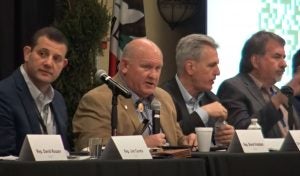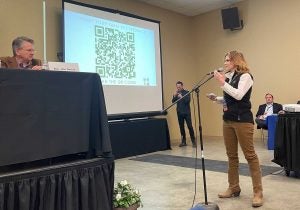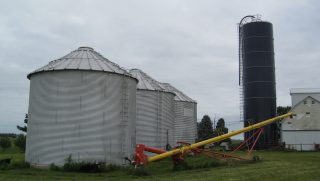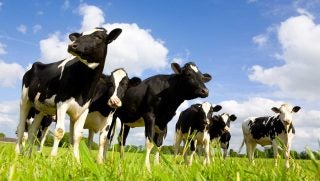The first official Farm Bill Listening Session kicked off February 14 at the World Ag Expo in Tulare, California. If you’re like me going into the event, you may have zero idea what this “listening session” entails.
I walked into the Heritage Complex Banquet Hall that morning and found a seat in the front row. The room was bustling with members of the media, and the agriculture industry alike. Sitting on a raised stage, at the front of the room, was a series of long tables, each with three name placards across them. The names?
Republican Speaker of the House Kevin McCarthy of California, Chairman Glenn “GT” Thompson (R-Pa.), and Reps. David Valadao (R-Calif.), Jim Costa (D-Calif.), John Duarte (R-Calif.), Derrick Van Orden (R-Wis.), John Rose (R-Tenn.), Jimmy Panetta (D-Calif.), Doug LaMalfa (R-Calif.), Salud Carbajal (D-Calif.), and David Rouzer (R-N.C.)
After the gentlemen sat at their designated seats, Thompson welcomed the room with an inspirational message.
“Good morning everybody and thank you all for joining us today. We’re here on Valentine’s Day, which shows you how much we love American agriculture,” he said. “I’m thrilled to welcome you here once again to the first official Farm Bill listening session. I’m G.T. Thompson, Chairman of the House Committee on agriculture, and I’m sure many of you know the the current farm bill is set to expire this year, the end of September, and without a doubt the most important part of the farm bill process is to hear from farmers, ranchers, foresters, producers, and key stakeholders in rural America. … The farm bill really is about those who produce, those who process, and those who consume.”
Thompson emphasized the purpose of each congressional member’s presence during the session: to listen.
“We love what God has blessed us with and today, God has blessed us with two ears and one mouth, and that’s why we’re calling it a listening session, to be able to hear from you and bring your voice to the 2023 farm bill,” Thompson said.
Heavily noted was the presence of both Republican and Democratic members. With the looming dread of not getting a 2023 farm bill passed due to clashes between parties, the listening session conjured hope that this farm bill will not only be passed this year, but will also be joyfully bipartisan. I suppose we will see how that shakes out.

McCarthy, who became the House speaker earlier this year, made a brief introduction — also highlighting the bipartisan aspect.
“We want to make sure we do the right things, we’ve got a farm bill up once every five years — there’s a lot of different concerns,” he said. “Before you, there’s not a bunch of Republicans members from Congress, before you is a bipartisan group of Congressional members who are here to use their ears. It’ll never get you in trouble by using your ears, and I hope you realize this is our very first, in this new Congress, where we have come to listen to you about how we go about, not just the farm bill, but dealing with agriculture for the future. …
“It’s not my place to talk, it’s my place to listen. I’m going to turn it back over to GT, and I thank you for being a part of this, and really showing your leadership. … I believe we’re starting on the right foot with GT as the chairman, but also in a bipartisan way making sure all voices are heard so thank you very much.”
Once introductions of each member were complete, so began the almost two-hour official session. This consisted of a queue of speakers, who had filled out comment cards prior to the session, called up one-by-one to present their priorities and concerns for the farm bill. Most speakers were representing industry organizations, but a handful of production farmers and ranchers had a moment on the mic as well. And the congressmen did as they promised: They listened the entire time and took notes as each participant spoke. (Each speaker had approximately three minutes to share their perspective.)
While I won’t quote speaker input in this article, you can watch the recorded listening session on YouTube, or on the House Committee on Agriculture website.
Many participants echoed similar needs between each other, from more funding for research to protect crops from pests, more SNAP support to ensure families who need help are able to get access to healthy, affordable foods, to better crop insurance to aid farmers and ranchers in times of natural disasters and volatile weather.
Many of these topics have already been addressed by industry organizations in their policy priorities, but being able to address congressmen face-to-face and share personal anecdotes about their industry or production agriculture’s struggles was a crucial step to helping these politicians know what the ag industry really needs.
The first official listening session taking place in such a vital region of the agriculture industry, during one of the most popular agriculture events in the world, feels extremely appropriate. Even Valadao and Thompson agreed with this in their Fresno Bee op-ed published prior to the session.
“The Valley is the agricultural heartland of California, and with less than one percent of our nation’s farmland, the Central Valley supplies a quarter of our nation’s food,” they said in the piece. “The reputation as America’s breadbasket comes from the help of nature, and a whole lot of hard work and skill from our farmers, ranchers, and producers. It’s these hardworking men and women whose opinions are vital to crafting a Farm Bill that puts producers first and strengthens our food supply chain.”

While no other listening sessions are on the calendar as of the time this article was published, there are likely to be more, and these events are an invaluable way for you to have your concerns heard and be part of the farm bill process.
If there is one you can attend, and one you are able to speak at, I highly suggest taking advantage of the opportunity.
After sitting in on this session, I suggest you come in with your talking points typed up, and practice speaking to ensure your thoughts are concise and under three minutes — they will “red card” you, preventing you from speaking further, if you go beyond that time limit. In order to get a chance to be at the mic, you must fill in a comment card when you arrive, and you will be called up to the mic when it’s your time.
If you aren’t comfortable talking in front of crowds, but want to have your voice heard, you can submit to an online forum as well, which was available to attendees through a QR code displayed during the session in Tulare.
Markie Hageman Jones majored in agribusiness at Fort Hays State University. She is actively involved in her state Cattlemen’s Association, Young Farmers chapter, and National Cattlemen’s Beef Association. Her AGDAILY.com articles can be found here.



